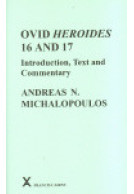Google Books previews are unavailable because you have chosen to turn off third party cookies for enhanced content. Visit our cookies page to review your cookie settings.
The Deceptive Realism of Machado de Assis (Hardback)
A Dissenting Interpretation of Dom Casmurro
Imprint: Francis Cairns Publications
Pages: 215
Illustrations: viii + 215 pages.
ISBN: 9780905205199
Published: 1st December 1984
Script Academic & Professional
Pages: 215
Illustrations: viii + 215 pages.
ISBN: 9780905205199
Published: 1st December 1984
Script Academic & Professional
You'll be £20.00 closer to your next £10.00 credit when you purchase The Deceptive Realism of Machado de Assis. What's this?
+£4.99 UK Delivery or free UK delivery if order is over £40
(click here for international delivery rates)
Order within the next 3 hours, 42 minutes to get your order processed the next working day!
Need a currency converter? Check XE.com for live rates
(click here for international delivery rates)
Order within the next 3 hours, 42 minutes to get your order processed the next working day!
Need a currency converter? Check XE.com for live rates
The Brazilian Joaquim Maria Machado de Assis, born in Rio de Janeiro in 1839, is regarded as the greatest Latin-American novelist of the nineteenth century. Dom Casmurro (1899) is one of his most important works. Its narrator, Bento, who is also its central character, sets out to convince the reader, on insufficient grounds, of the adultery of his wife, Capitu. The complexity and irony which results from this mode of presentation have led critics to see Dom Casmurro as a precursor of the fictional experimentation of the twentieth century. This book argues, against the critical consensus, that Machado's work is in essence realist, and that Dom Casmurro in particular offers a coherent and disenchanted vision of Brazilian society in the reign of Pedro II. Slavery, the "religious question", the relationship between traditional values and developing capitalism, even the Paraguayan War - all lie ominously concealed in the background to the domestic history of Bento and Capitu. John Gledson begins his analysis of Dom Casmurro by negotiating the labyrinth of Bento's narration; in the first chapter he shows that there is not only another possible version of the events related by Bento, but also another Bento, a sinister representative of his social class. The second chapter establishes the "true" plot of the novel, drawing its origins both from Machado's earlier fiction and from the patriarchal and paternalistic society of the period. Chapters three and four explain how various key episodes must be allegorically understood as part of Machado's vision of the politics and ideology of the Second Reign. The concluding chapter, summing up the main strands of the argument, points out that the habits of thought which govern the narration are also those which govern the class and society to which Bento belongs. The argument throughout is supported by extensive quotations from the Portuguese, with English translation. This study of Dom Casmurro lays the basis for a more "realistic" and comprehensive understanding of a major novelist. It has important implications for the general study of the late nineteenth-century and early twentieth-century novel, as well as for the history of Brazilian and Latin-American literature.
Other titles in Francis Cairns Publications...










